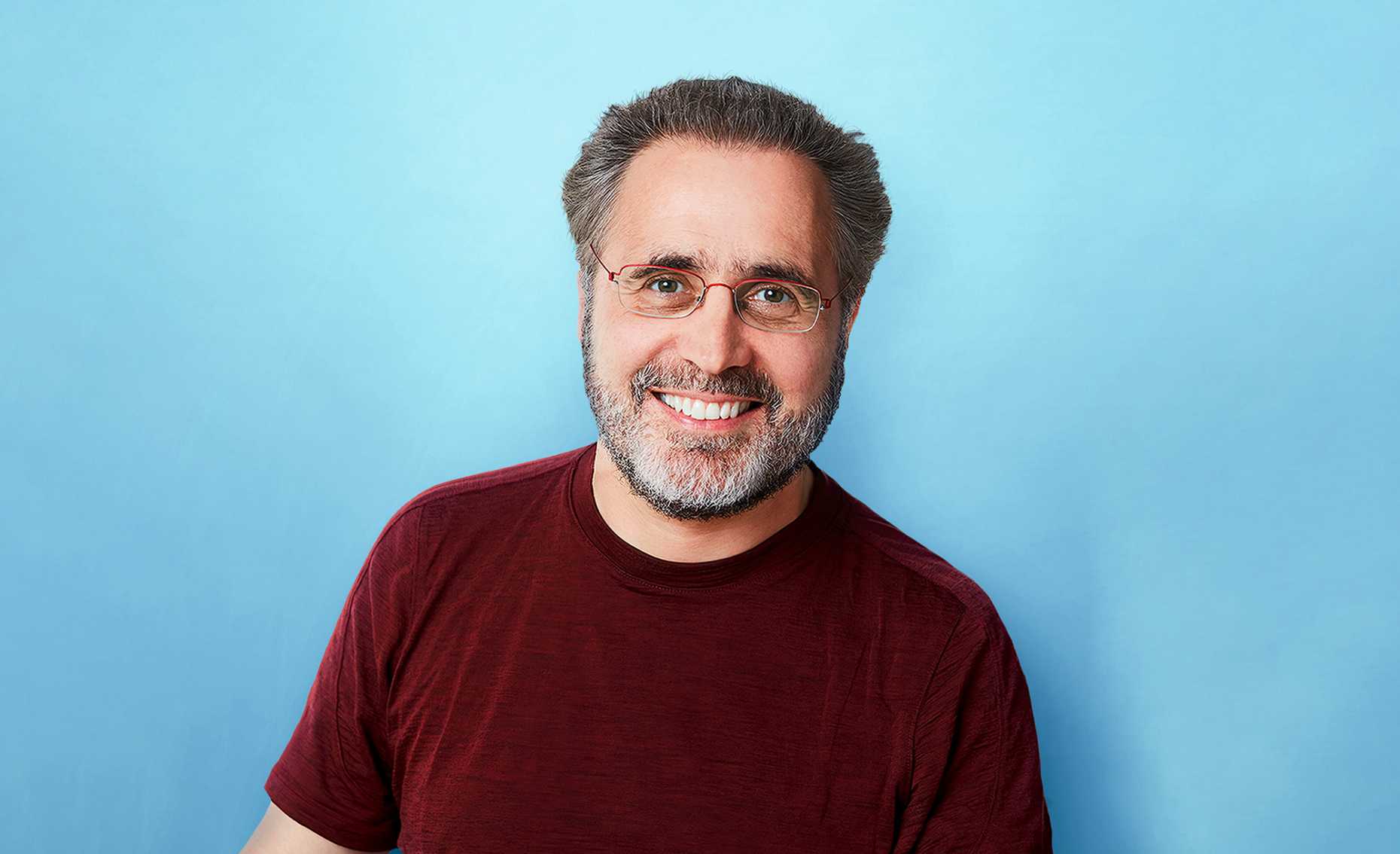Urs Hölzle: "Computer science is not a narrow career choice"
Urs Hölzle studied computer science at ETH Zurich from 1983 to 1988 and gained his doctorate at Stanford University, before joining Google in 1999 as employee number eight. As a top manager at Google, Urs Hölzle not only shapes the global technology landscape but also affects the lives of millions of people through his work.

Urs Hölzle, what made you want to study computer science?
The subject really interested me. Also, I was aware that I would be working for something like 40 years after completing my education. Computer science gave me huge flexibility in this regard. Although I would be working in IT for many years, I could choose the industry or specialist field of work. Computer scientists are needed everywhere – in medicine, biology, and the energy industry. In this sense, computer science is actually not a narrow career choice, as it leaves plenty of options open to you.
What did you learn from your time at ETH?
The department was no more than two years old when I arrived. So the curriculum was still very broad in those days, certainly a bit broader than what’s offered today. Back then, we did more math than computer science. What I really liked was the environment. I could attend lectures and seminars that made me think. They weren’t just about computer science, but included scientific topics of general interest. And of course what I also really liked was that ETH is an international university. I had a lot of contact with people from other cultures and countries.
Did you know from the outset that you wanted to do your doctorate abroad?
No, not at all. I didn’t even know if I wanted to do a doctorate. It just worked out like that. I took things as they came, year by year. I really started thinking about a doctorate only in the last year of my ETH course. In the end, I wanted to go to the US because the subject that I was interested in was not covered in Switzerland or anywhere in Europe. Back then, I spent a lot of time on object-oriented programming languages. Almost all the researchers working in this field were based in the US. I chose Stanford University on account of my later doctoral supervisor. After I read his publications, I knew that I wanted to apply to him.
Did your ETH degree prepare you sufficiently for Stanford University?
Absolutely; even back then ETH was one of the best institutions in the world. I passed the entrance exam to Stanford University with very little effort.
Is there anything that was not taught sufficiently, or at all, in your ETH degree?
The greatest difference back then was that the American universities prepared the students much more in the art of communicating their ideas. No matter whether you were giving a talk or writing a paper, the expectations in terms of communication and presentation of the content you created were enormously high and were then also practiced accordingly. That was certainly not considered so important at ETH in my day. I personally view communication as a key success factor – not only in the academic world but also in working life. I have the feeling that communication is learned at school in the US, even before going to university, and in Switzerland you’re more likely to learn it on the job. This has no doubt changed greatly at ETH over the last 25 years. Nevertheless, the presentations given by Americans at international meetings are still some of the best.
Can you explain more specifically why you think communication is so important?
Because IT is teamwork. These days, there are only a very few areas of IT where an individual can make a big impact, such as in cryptology or compression techniques. What matters most there is the algorithm. This is where an individual can make ground-breaking progress. But normally it’s teams of at least two or three engineers working together closely who achieve something jointly. That’s why it’s crucial for you to be capable of communicating your ideas to other people and of talking about the work you’re doing. If you know what would be the right thing to do, but can’t convey that to the others in the team or the company, the right thing will never happen. So the way I see it, people who can’t express themselves in a clear way can never be successful.
This is an excerpt from an interview that was published in the 360° magazine of the ETH Zurich Foundation, published by Open Systems AG. You can find the magazine external page here and read the full interview here.
40 years D-INFK
In 1981, the computer science curriculum was introduced at ETH Zurich. At the same time, the IIIC division was established, which was the foundation for today's Department of Computer Science. On the occasion of its 40th anniversary, we present alumnae and alumni who have carried their knowledge and skills from ETH Zurich into the outside world over the past four decades.